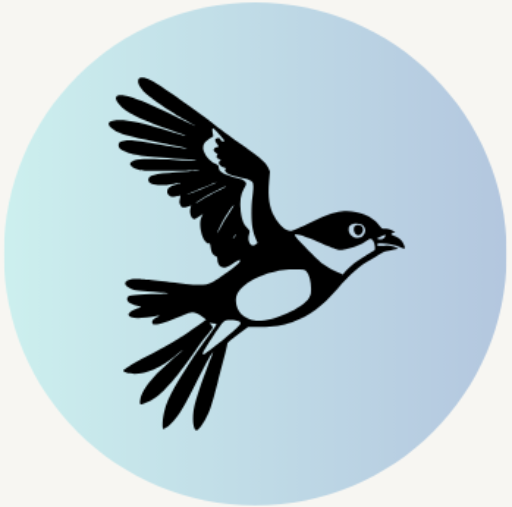Muscovy ducks live for a normal of 8 to 12 years in the wild, however a few people might surpass this reach with legitimate consideration. Their life expectancy is impacted by hereditary qualities, natural surroundings quality, and predation risk. Understanding these variables is pivotal for guaranteeing the prosperity and life span of Muscovy ducks in both regular and hostage conditions.
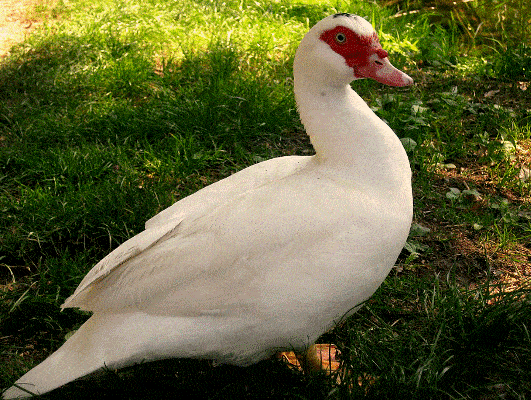
Understanding Their Lifespan
Muscovy ducks, with their particular appearance and peculiar ways of behaving, frequently spellbind our consideration. In any case, past their appeal lies an entrancing viewpoint that merits investigation: their life expectancy. In this article, we’ll investigate these exceptional animals and understand why understanding their life span is pivotal.
The Enigmatic Muscovy Ducks:
A Concise Outline Muscovy ducks, experimentally known as Cairina moschata, are local to Focal and South America. They’re particular from other duck species, with unmistakable facial caruncles and an interesting quack-less voice. Their versatile nature has seen them flourish in different environments, from metropolitan parks to country lakes.
Why Their Lifespan Matters Understanding the lifespan of Muscovy ducks is essential in light of multiple factors. It, right off the bat, offers bits of knowledge about their general health and prosperity. By concentrating on their life span, specialists can evaluate the effect of ecological elements, infections, and human obstruction on their populace.
Investigating Lifespan Fluctuation While Muscovy ducks regularly live for 8 to 12 years, individual life expectancies can shift incredibly. Factors like hereditary qualities, territory quality, and predation risk play huge parts in deciding how long these ducks live. By unwinding these intricacies, we gain a more profound appreciation for the sensitive equilibrium of nature.
“Muscovy ducks possess a unique charm that extends beyond their physical appearance. Understanding their lifespan is key to ensuring their conservation and well-being.” – Dr. Avian Enthusiast
“The longevity of Muscovy ducks is a testament to their resilience and adaptability in diverse environments.” – Wildlife Biologist
A Pertinent Table: Muscovy Ducks Lifespan Across Various Conditions
| Environment | Average Lifespan (Years) |
| Wild Habitats | 8-12 |
| Captive Settings | 10-15 |
Diving into the life expectancy of Muscovy ducks reveals insight into their singular processes as well as features our interconnectedness with the normal world. By cultivating a more profound comprehension of these wonderful animals, we prepare for their proceeded with conjunction close by us. How about we set out on this excursion of disclosure and appreciation for the existence of Muscovy ducks?
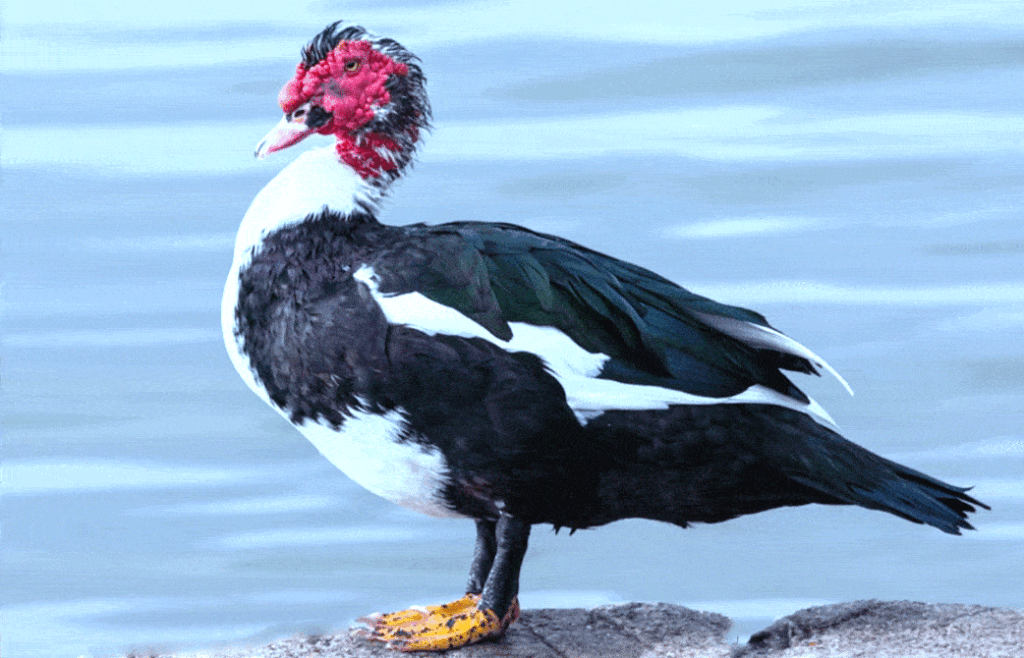
Enhancing Lifespan: Tips for Your Muscovy Ducks
Optimal Diet for Longevity
Feed your Muscovy ducks a fluctuating diet rich in supplements to help their health and life span. Ensure they approach grains, greens, and protein sources to meet their dietary requirements. A decent eating routine is critical to aiding Muscovy ducks to carry on with a long and sound life.
Ample Water Supply
Water is fundamental for the prosperity of Muscovy ducks. Give them spotless and new water for drinking and washing. Hydration is fundamental for their overall prosperity and can add to a more long future. Ensure water is quickly open reliably.
Protecting Against Predators
Hunters represent a danger to the health and life span of Muscovy ducks. Execute measures to shield them from predation, like utilizing fencing, asylums, and management. By defending them from hunters, you can assist with guaranteeing they live longer and flourish in their current circumstances.
- “A well-fed and protected Muscovy duck is likely to live a longer and healthier life.” – Duck Enthusiast
- “Water is not just a necessity for Muscovy ducks; it’s a lifeline that can contribute to their longevity.” – Wildlife Conservationist
| Aspect | Recommendations |
| Diet | Offer grains, greens, and protein-rich food sources |
| Water Supply | Give perfect and new water consistently |
| Predation Protection | Use fencing, asylums, and management |
By focusing on their diet, water supply, and security from hunters, you can essentially expand the life expectancy of your Muscovy ducks. These basic yet viable measures can assist with guaranteeing they live lengthy, solid, and cheerful lives under your consideration.
What Influences Their Time in the Wild?
Average Lifespan in the Wild
Muscovy ducks ordinarily live for 8 to 12 years right at home, displaying their flexibility in different conditions. This life expectancy permits them to adjust and flourish in different biological systems, from wetlands to metropolitan parks.
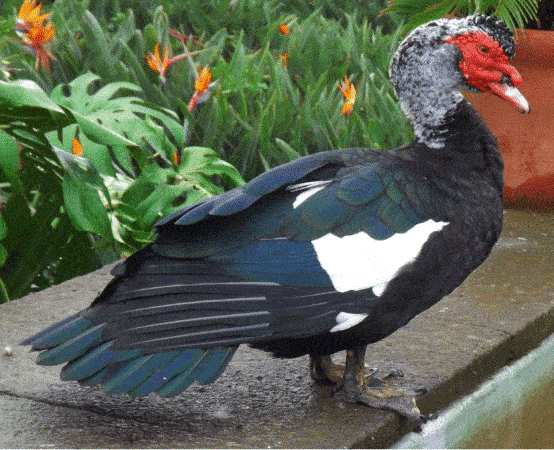
Factors Affecting Life expectancy
Hereditary qualities, climate, and predation are urgent in molding the life expectancy of Muscovy ducks. Understanding these elements reveals insight into their step-by-step processes for survival as well as illuminates preservation endeavors to safeguard their living spaces.
Genetics and Longevity
The hereditary cosmetics of Muscovy ducks incredibly influence their life expectancy, with solid hereditary characteristics adding to their life span. By concentrating on their hereditary qualities, scientists gain significant bits of knowledge about their developmental history and variation instruments.
Natural Effect
The climate plays a significant part in deciding the life expectancy of Muscovy ducks. Factors like natural surroundings quality, food accessibility, and environmental conditions straightforwardly impact their capacity to flourish and get by in nature.
Predators: A Constant Threat
Hunters represent a critical danger to Muscovy ducks, influencing their endurance rates and generally speaking populace elements. Understanding hunter-prey cooperation is fundamental for carrying out viable preservation procedures to safeguard these birds.
Comparison with Other Duck Species
Contrasted with some other duck species, Muscovy ducks frequently display a more drawn-out life expectancy, featuring their versatility and strength. This life span highlights the significance of protecting their natural surroundings and guaranteeing they’re proceeded with presence in nature.
Understanding the elements impacting Muscovy duck life expectancy is fundamental for preservation endeavors pointed toward saving their normal living spaces and guaranteeing their drawn-out endurance in nature. By unwinding these intricacies, we can pursue a future where Muscovy ducks keep on flourishing close to us in their regular habitats.
Unveiling the Mysteries: Muscovy Duck Scientific Classification
At any point pondered the many-sided subtleties of Muscovy ducks and how they fit into the excellent plan of scientific categorization? We should set out on an excursion to investigate the logical order of these enamoring animals.
What is the Scientific Classification of Muscovy Ducks?
Muscovy ducks have a spot with the animal packs Cairina moschata, consolidating different subspecies. Understanding their logical grouping reveals insight into their transformative connections and natural jobs in the animals of the world collectively.
Delving Into the Taxonomy of Muscovy Ducks
At the most elevated level of characterization, Muscovy ducks have a place in the realm of Animalia, underlining their common qualities with different creatures. Inside the area, they fall under the phylum Chordata, class Aves (birds), and solicitation Anseriformes (waterfowl).
Muscovy Ducks: A Fascinating Species
Muscovy ducks are a remarkable variety known for their particular appearance and conduct. They have an appeal that separates them from other duck species, making them an intriguing subject of study for researchers and fans the same.
Subspecies and Varieties
Muscovy ducks include different subspecies and assortments, each with its extraordinary attributes and characteristics. Investigating these assorted orders gives important bits of knowledge into the rich biodiversity of Muscovy ducks and their variation to various conditions.
Subspecies: Exploring Genetic Diversity
Inside the species Cairina moschata, Muscovy ducks display a few subspecies, each with unmistakable hereditary varieties. These subspecies might vary in actual highlights, environment inclinations, and ways of behaving, mirroring their developmental history and geographic conveyance.
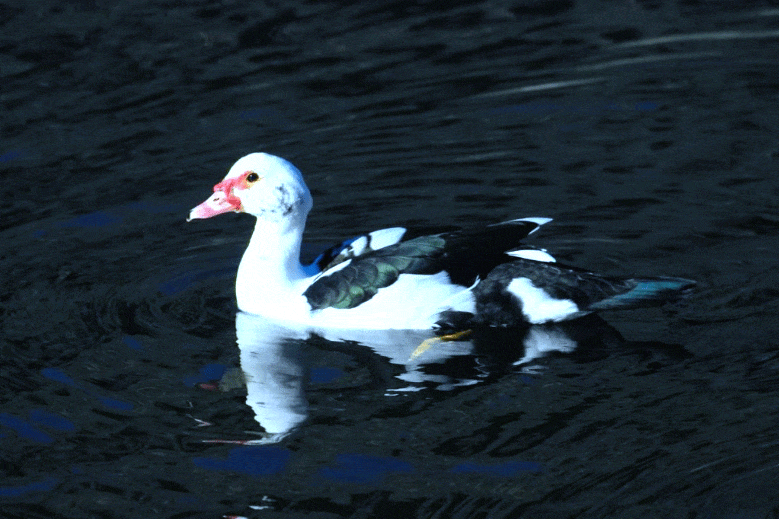
Varieties: Understanding Phenotypic Variation
In addition to subspecies, Muscovy ducks likewise arrive in various tones and examples, known as assortments. These varieties in plumage can go from strong varieties like dark or white to unpredictable examples, for example, pied or banned, adding to the tasteful allure of these birds.
Diet and Nutrition: Fueling Longevity
An even eating routine is basic for Muscovy to continue with long and strong lives. Giving various grains, greens, and protein sources ensures they get the enhancements expected for ideal health. By focusing on their eating routine, we can help Muscovy ducks flourish and prosper.
Health Care and Disease Prevention: Safeguarding Wellness
Standard health check-ups and sickness anticipation measures are significant for broadening the life expectancy of Muscovy ducks. By checking their health and executing preventive measures, we can relieve gambles and guarantee they lead long and satisfying lives.
Habitat and Living Conditions: Creating Optimal Environments
The natural surroundings and everyday environments of Muscovy ducks fundamentally influence their life expectancy. Furnishing a protected and agreeable climate with admittance to clean water and reasonable haven advances their prosperity and adds to their life span.
Tips for Promoting Longevity
Ensuring Muscovy ducks live long and healthy lives requires proactive measures and mindful consideration. By following these tips, you can advance their life span and prosperity:
Provide Proper Nutrition: Offer a decent eating regimen rich in grains, greens, and protein sources to meet their dietary necessities and support overall health.
Create a Safe Environment: Ensure their natural surroundings are liberated from risks and give admittance to clean water, a reasonably safe house, and more than adequate space for exercise and investigation.
Regular Health Check-ups: Timetable routine veterinary visits to screen their health, regulate immunizations, and speedily address any potential well-being concerns.
Preventative Care: Carry out preventive measures to safeguard against normal illnesses and medical problems, for example, parasite control and keeping up with great cleanliness rehearses.
Monitor Behavior: Watch out for their way of behaving and propensities for any progressions or indications of misery, as early location of medical problems can prompt improved results.
Minimize Stress: Lessen stressors in their current circumstance, like clear clamors or congestion, as drawn-out pressure can affect their safe framework and generally speaking prosperity.
Give Mental Feeling: Offer advancement exercises and amazing open doors for mental excitement to keep their psyches drawn in and forestall weariness.
By integrating these tips into your consideration schedule, you can help Muscovy ducks live lengthy, blissful, and healthy lives.
Habitat: Creating a Suitable Home
Muscovy ducks are versatile birds that can flourish in different environments, including wetlands, woodlands, and metropolitan regions. They favor environments with admittance to water for swimming and rummaging, like lakes, lakes, and streams. Giving an environment with reasonable vegetation for settling and more than adequate food sources is fundamental for their prosperity.
Migration: Limited Movement
Unlike many other duck species, Muscovy is not known for significant distance relocations. They ordinarily display restricted development inside their laid-out range, particularly when they approach appropriate living space and food sources all year. Nonetheless, they might move occasionally looking for better assets or favorable places.
What Do They Eat?
Muscovy ducks are omnivores with a different eating routine that incorporates both plant and creature matter. They feed on different food sources relying upon their territory and accessibility, including oceanic plants, bugs, little fish, and scavengers. Enhancing their eating regimen with grains, seeds, and vegetables can give extra nourishment, particularly in imprisonment.
Generation: Nurturing New Life
Muscovy ducks are productive reproducers known for areas of strength for their senses and defensive way of behaving towards their posterity. They ordinarily breed throughout the spring and mid-year months, with females laying grasps of eggs in separated homes close to water bodies.
The brooding time frame goes on 35 days, after which the ducklings hatch and are focused on by the two guardians. Muscovys exhibit noteworthy nurturing abilities, directing their young to food sources and showing them fundamental basic instincts until they are mature enough to fight for themselves.
This devotion to generation adds to the proceeded development and supportability of Muscovy duck populaces in their normal living spaces.
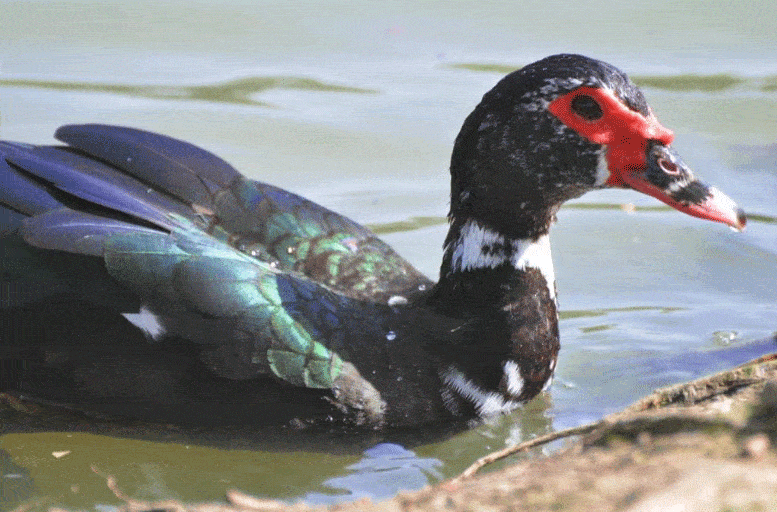
As Pets: Companionable Animals
Muscovy ducks can make beguiling and warm pets for people able to give them appropriate consideration and convenience. They are known for their cordial disposition and social nature, frequently shaping solid bonds with their human parental figures.
In any case, it’s fundamental to think about their particular requirements, including admittance to water for swimming, sufficient room for working out, and a decent eating routine. Giving a reasonable climate and friendship can guarantee a satisfying life for Muscovy ducks as pets.
Protection Status: Preserving a Species
The protection status of Muscovy ducks changes depending on their geographic area and living space. While they are viewed as bountiful in certain districts, populaces in others might confront dangers like territory misfortune, contamination, and hunting pressure.
Efforts to protect and monitor Muscovy ducks center around environment conservation, economic administration practices, and bringing issues to light about their natural significance. By cooperating to address these difficulties, we can protect the fate of Muscovy ducks and guarantee they’re proceeded with presence in nature.
Interesting Facts About Muscovy Ducks
Interesting Appearance: Muscovy ducks are undeniable by their striking appearance, depicted by red facial caruncles, an explained pinnacle, and specific plume plans. These elements make them stand apart from other duck species.
Silent Quack: Dissimilar to most ducks, Muscovy ducks are generally tranquil and produce a low murmuring sound rather than a regular quack. This interesting vocalization adds to their interest and persona.
Tree Nesters: While many duck species fabricate their homes on the ground, Muscovy ducks like to settle in trees or raised areas. This conduct safeguards their eggs and youth from ground hunters.
Great Flyers: Despite their enormous size and massive appearance, Muscovy ducks are gifted fliers fit for covering significant distances. They frequently utilize areas of strength for them to take off and skim nimbly through the air.
Versatile Diet: Muscovy ducks are omnivores with an alternate eating schedule that consolidates bugs, little fish, plants, and, shockingly, minimal very much-developed animals. This flexibility grants them to thrive in different normal environmental elements and conditions.
Strong Parental Instincts: Muscovy ducks are known for major areas of strength and fatherly senses, industriously focusing on their posterity and safeguarding them from hurt. The two guardians assume a functioning part in raising and sustaining their young.
Domestication History: Muscovy ducks have a long history of taming, tracing all the way back to old civic establishments like the Maya and Aztecs. They were valued for their meat, eggs, and quills, and were much of the time saved in imprisonment for these reasons.
These interesting realities feature the extraordinary qualities and ways of behaving of Muscovy ducks, making them a spellbinding subject of study and reverence.
FAQs
What is the lifespan of a Muscovy duck?
Muscovy ducks have an ordinary future of eight to twelve years, yet in servitude, they can live up to 22 years. These ducks don’t make a lot of upheaval. Dissimilar to different ducks, they will possibly utter a sound when gone after or excessively invigorated.
How rare is the Muscovy duck?
The Muscovy duck has profited from home boxes in Mexico, yet is fairly phenomenal in a large part of the eastern piece of its reach because of exorbitant hunting. It isn’t viewed as an internationally undermined animal group by the IUCN, notwithstanding, as it is broadly disseminated.
What are some interesting facts about Muscovy ducks?
The male Muscovy Duck is the biggest duck in North America, however, the female is just around 50% of his size. After laying 8-15 eggs, she does all of the home guard and raises the ducklings (which have sharp paws and snared bills to move out of the home).
How to tell how old a Muscovy is?
Typically, more established Muscovies have more blunt plumes contrasted with their more youthful partners, whose quills look extensively more lively. With age, wild Muscovy ducks foster reflexive dark plumes.
Conclusion
In conclusion, our investigation of Muscovy ducks has uncovered their astounding flexibility, novel qualities, and critical commitments to environments. As we recap the central issues, obviously guaranteeing a solid life expectancy for Muscovy ducks is vital. By tending to variables like eating routine, natural surroundings quality, and preservation endeavors, we can advance their prosperity and life span.
It’s pivotal to perceive the significance of Muscovys in keeping up with natural equilibrium and biodiversity. Their presence advances our normal world and highlights the interconnectedness of every living being. Subsequently, we should keep on supporting additional exploration and preservation endeavors to safeguard Muscovy ducks and their natural surroundings.
All things being equal, we should focus on encouraging a more profound comprehension and appreciation for Muscovy ducks. Together, we can pursue a future where these entrancing birds flourish as one with nature, improving our lives and our general surroundings.
Read More Do Geese Eat Fish? Fact or Fiction Soar With Birds
